Jenn Ashworth is an award-winning novelist, a Fellow of the Royal Society of Literature, and a professor of writing at Lancaster University. She is known for her claustrophobic and emotionally intensive novels such as the Betty Trask Award-winning A Kind of Intimacy and Ghosted: A Love Story, and for her unflinching memoir in essays, Notes Made Whilst Falling, which was shortlisted for the Gordon Burn Prize. The Bee caught up with her to discuss how her childhood shaped her ambitions to be a writer, class consciousness at university, walking, finding your way, and unexpected events and destinations.
Claire Malcolm: I’m fascinated by how your childhood experience of growing up in a strict working-class Mormon family in Preston in the early ’80s has shaped you. You’ve talked in other interviews about how difficult, restrictive and controlling this context was for you. Were you always writing and reading – was it encouraged beyond religious scripture?
Jenn Ashworth: I was certainly always the kid happier indoors with a book, or haunting the library, rather than out on my bike or feeling at home with the other kids. It wasn’t so much that reading and writing were discouraged – only that what reading and writing were for, and what sort of things could be read and written, were limited in this very direct, prescriptive way. Mormon kids are encouraged to write journals, to use their talents, to take their education seriously – but the purpose was always fairly devotional. Fiction was for creating uplifting stories for others, and memoir or journal-keeping was to collect evidence of God’s working in your life.
I wrote ghost stories in private, and little skits and plays and poems for performance at church youth groups in public, and I knew very early on what sort of writings and selves were acceptable in which places: there was a doubleness to who I needed to be. This was absolutely restrictive in some ways, but helpful in others. I was part of a group that had been founded by a man – Joseph Smith – who was either a prophet or a novelist: nobody ever needed to convince me that writing and storytelling were absolutely fundamental to the way people could understand themselves and relate to each other and the world. I was born into circumstances that dramatised the potential for stories to be these machines of control, as well as connection.
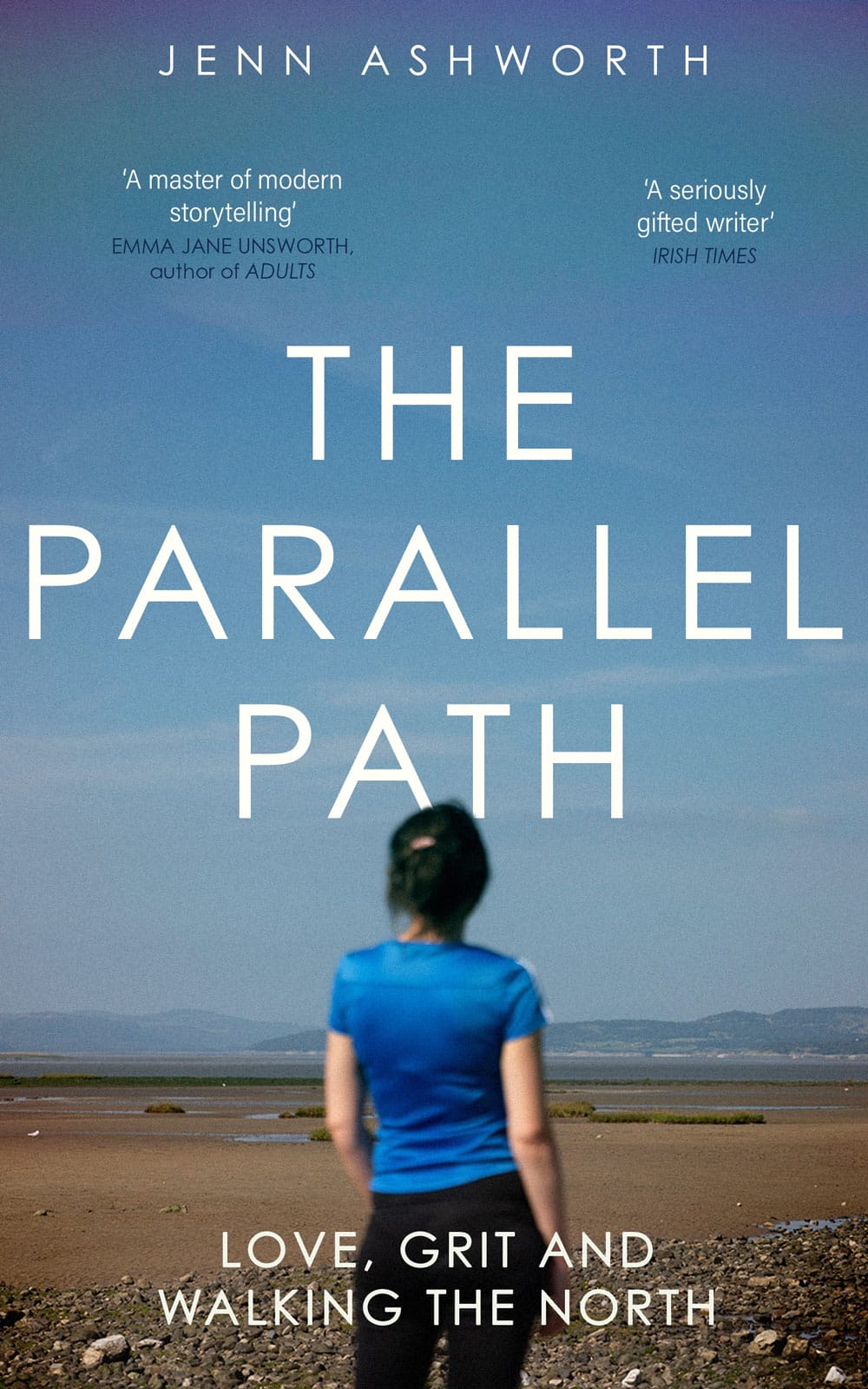
CM: Your teenage years were very challenging and unhappy. You were a school refuser and, following that, were inducted into the system of welfare, psychologists, and a medicalisation of your unhappiness. How do you look back and understand this period of your life now?
JA: I hope a child in my circumstances would be treated differently now. I hope someone behaving as I behaved at that time would be listened to a little more, rather than told stories about illness and moral failure and psychological dysfunction. I look back and what I see is someone acting out, very clearly, and in very bold language, a kind of unhappiness and anger that, to my adult mind – and as someone who has mothered teenagers myself – seems fairly reasonable and logical given the circumstances I was existing in.
CM: You made it through your childhood and were accepted at a women’s college at Cambridge University, which you found to be a haven – and you say that you bloomed there. How was your experience of entering Cambridge as a working-class kid from the North?
JA: Again – there was this doubleness. This has been an absolute touchstone throughout my life: existing in two lives at once, and never quite belonging to either. I was an ordinary working-class northern kid, able to blend in, more or less, with others like me, and I also had this secret life belonging, more or less, to this very squeaky-clean American high-demand religion that was both other and strange, and also a really knitted-in part of Lancashire history.
Similarly, at Cambridge, there were all the class-based microaggressions about accent and manners and background that you’d expect. I have plenty of those sorts of stories, and I understand the expectation that those are the stories someone like me would tell about a place like that. It’s part of the truth: being repeatedly asked if I had any books in the house when I was growing up, being told that there was more dog food sold in Lancashire than there were dogs – because, apparently, we all liked eating it.
But there is another story too – one that’s unacceptable in some circles, and no less true – which is that being at Newnham felt like a home and a gift: the space to read, to think, to be in this absolutely demanding environment and have the parts of me that weren’t very welcome in the places I’d been before taken extremely seriously. I told them in my interview that I wanted to be a writer, that I was working on a novel. It wasn’t shameful, wasn’t remarkable – it was utterly the sort of thing expected of a bright, bookish girl. I cherished that and felt cherished by it: nobody had ever wanted that bit of me before.
CM: Social mobility can be a liminal experience in terms of where you end up and where you feel that you belong. You’re now a professor of creative writing. How do you think about your class identity now, and do you think it shaped or obstructed your ability to follow your desire to be a writer? Do you think it shapes your writing?
JA: So this experience I have – of being mildly unacceptable wherever I am – not properly working class because of the Mormonism, then not properly Mormon ever, for many reasons, then at Cambridge, not properly the sort of Cambridge student that was expected, then after leaving and going back to Lancashire, not only having the expected horror stories of middle-class Cambridge people, but also the stories of being valued, cherished intellectually, of having my ambitions taken seriously – what that did for me was absolutely turn me into a writer.
I can float between these places, more or less comfortably. Code-switching, I guess it’s called. I have all these different buildings I’ve had to find some relation to – a pupil referral unit, a Mormon temple, a local authority children’s home, dinner with the Cambridge fellows – and in each of these places, parts of me have been absolutely unacceptable to someone and have offended their sense of what sort of person I should be. I had really early experiences of understanding what that sort of persistent discomfort meant. It is in my writing and in that attitude to making fiction and memoir – curiosity and openness to contradiction – that I can feel at home. Everywhere else I am a bad fit, and I’m interested in the texture of that, and that interest is what drives me to the page.
CM: In your new book, The Parallel Path, you shake off the constrictions of lockdown and set forth on a 190-mile walk along Wainwright’s famous Coast to Coast path, which crosses the country from your home in Lancaster to the east coast. You write that even considering the Coast to Coast walk felt both silly and joyful, as it’s not the kind of thing that you would usually do. What got you to the point where you bought the boots and booked the B&Bs?
JA: I think another version of the discomfort that I’ve just been talking about. I was at this mid-point in my life, safely grown up, had a respectable job doing something I loved, I’d bought a house – I had achieved this comfortable, middle-class existence. Lockdown didn’t threaten that: I was very lucky in many ways – but it did pin me down to the house in a way that gave me this really deeply felt, physical restlessness. It took doing the walk, then writing about the walk, to really and truly understand what was going on for me then – at the time, it was just something my body was urging me to do. I felt it in my muscles.
CM: I was interested that when you set out to buy the walking boots your partner says: “Get the good ones, don’t cheap out on yourself,” and you note that “I have always struggled with buying a good version of what I need.” Is this to do with your class background?
JA: Yes, I think so. This tendency was invisible to me until I came into contact with people who lived differently and had the expectation that safety and comfort were the normal state of affairs – and that any departure from that needed repairing or amending. I also think it was a little to do with motherhood. I had my eldest when I was 22, so I’ve been a mother about as long as I’ve been an adult, and that sense of making sure someone else is comfortable and has what they need before I attend to myself has been very deeply stitched into me. Not that I’ve always succeeded in doing that: I’m ordinarily distracted and selfish – not a saint, not mother of the year by any unit of measurement. But my sense that it was OK for me to be in various kinds of discomfort – that that was the way things should be – is deep-rooted.
CM: Did you always plan to write about the experience of doing the walk? And if so, as it’s a walk that has been recorded and written about before, how did you plan your approach? This was always going to be an interior experience as well as about you taking on an epic walk.
JA: I think I had the idea that I might write an article about it – perhaps something for a weekend newspaper. I hoped to get paid enough to offset the cost of going, which I felt guilty about. The letters I received from Clive made it obvious I’d need to write about the experience in a more expansive way. The questions I had – why I wanted to do this, and what happened because I did it – felt book-shaped, memoir-shaped.
There are a lot of walking books, a whole genre of walking literature – and I wanted to engage with some of that too: the things other people have said about the north, about solitude in nature, about endurance and sublime experiences – and consider my own experiences against these ideas.
CM: Alfred Wainwright authored a number of intricately illustrated walking guides (known collectively as A Pictorial Guide to the Lakeland Fells). In the book you note that his style is often “superior and bossy” and that he’s a bit cantankerous. Did he grow on you as you did the walk?
JA: He did! It was easy to be annoyed with him: the grumpiness, the not wanting to be around other people, these very quick judgements he makes about the places he passes through, this insistence that his way of seeing places is the best way to see them. I am allergic to all of that. He assumes his reader is a man, all the way through, and that was annoying too. It’s easy to caricature that side of him.
But what changed, I think, both doing the walk and writing the book, was seeing how much I had in common with him – I also had this grumpiness, this urge to be left alone, a kind of irritated and fed-up relation to other people, a sense of general unsatisfactoriness, wherever I was. That’s the state I was in when I set out on the walk, and I recognised myself in him.
Re-reading Wainwright also let me find this very delicate sense of grief, or loss, or mourning in his writing. His knowledge of these landscapes was lifelong and intimate, which meant he could see the ways they were changing – and he mourned those changes. He mourned himself too: the way his body was ageing and the high fells, in his last years, out of reach. I got to that place too – a sadder, gentler, more real relationship to people and places.
CM: Wainwright wasn’t the only person that you were taking this journey with. Your friend Clive was following your progress and sending you letters to your stopping-off points along the route. Clive is on his own path with a cancer diagnosis. When did you meet Clive, and how did he end up in this story?
JA: Clive is a neighbour of mine – an artist and filmmaker who I met online. Clive had asked me, originally, if I wanted to take part in a project he was curating at the time – he was talking to artists who had something to say about death. And we did have those conversations, sure, but shortly after that I had this more powerful sense that I wanted to hear what Clive himself had to say about that – and about lots of other things too: about home, and sickness, about being involved with doctors and hospitals, about his memories growing up in Morecambe, about his own art practice, his creativity and sense of joy at the world.
Clive had told me before I set off on the walk he was going to write to me, and it became clear, really early on, that if I was going to write about the walk, the letters from Clive – and the way thinking about what he had to say had changed me – would have to be the absolute spine of the book. Clive was responsible for turning what might have been a fairly run-of-the-mill story about solitary walking into this other thing – a meditation on friendship, on how to live well with sickness, with grief, with this sense of mortality that we both share.
CM: You turned 40 just before embarking on the walk, and this is a time when children are grown, life moves on, and your identity changes – or is up for change. You write about how you felt that your children and partner were moving on after lockdown, but that you felt constricted still and had a strong urge to ‘step out of character’. Did you manage to? And if so, where have you arrived at?
JA: One of the things that was chafing at me before I left was this sense of arrival, of settledness, of life more or less having taken its final shape. The urge to walk was a surprise – and what happened afterwards, another one. I prefer that, really – that knowledge that life will still offer up some unexpected discomforts. I don’t want to feel like I’ve arrived anywhere until I am dead!
CM: You set off on this walk to feel better but ended up discovering that you had a brain tumour, the diagnosis and treatment of which sent you off on a very different journey. How has that been?
JA: I don’t think it was a very different journey. The Coast to Coast was an odd training for having a brain tumour, but that is how it worked out. The walk required me to pay attention to my body, to care for myself in a very skilled, committed way – to understand my smallness in relationship to big fells, the weather, my own capacity to keep going, the insufficiency of my willpower, the complicated and beautiful way I needed to depend on other people. To deeply know that being sick or vulnerable or grief-stricken does not mean you’re unable to care for or offer something necessary to others – the gentleness inside endurance.
All of that happened on the physical journey of the walk and during this conversation I was having with Clive, and they were all exactly the things I needed in order to be alive and awake during my own illness.
CM: Illness brings a very specific kind of vulnerability with it, doesn’t it – especially if you’re a tough person used to putting everyone else’s needs before your own? You write that: “To show care in the north is often done through humour and practical action, and there’s still a bit of shame around the softer aspects that word implies.” Did you find it easy to give in to being cared for?
JA: No! I hated it! I still find it hard – it wasn’t that walking transformed me into this saintly, more evolved being. I remember insisting on washing my own hair after my surgery – I could smell the blood in it and it was knocking me sick – and having this row about whether it was OK for me to do that or not, and just being absolutely hell-bent on doing what I wanted when I wanted it.
I remember all these horrible ableist ideas bubbling up in me – that I could try harder not to be deaf, or that if I put some proper willpower into it, I could cut what was usually a six-month recovery into something more like three months. But what changed, I think, slowly – in fits and starts – is that I could start to feel some pleasure in being cared for, and that in my own desires for comfort and to be comforted, I wasn’t really being a burden on other people, but showing them myself more clearly, being more available for a deeper sort of relationship. There was something very joyful about that, even though it also involved codeine and a sick bucket.
CM: The book seems to have a lot of tension between psychological constriction challenges – lockdown, and then at one point you are lying in hospital facing a wall for two weeks – and the wildness and freedom of walking unhindered by others in nature. You write towards the end of the book that you are “changed, not cured”. What have you learnt from this experience, the recovery process, and where you now find yourself?
JA: I think we have a desire for transformation stories – something novelistic or even miraculous – a wish for our experiences to make us entirely different (which is a way of thinking about cure, isn’t it?). I’d set off on the walk hoping for that: that the world would adjust me in some way. And my experience isn’t like that. I am just as tough and independent and full of the sickness of willpower and the delusions that I can do things on my own as I ever was. I am still grumbly and cynical and judgemental – a touch of the Wainwrights about me – and less sorry about it than I probably should be.
What changed is that I have some other things too – some extra parts of me that have come onstage – parts that get a lot of pleasure from the softness of being cared for and looked after, that understand how much a sick or disabled person can give to someone else. An understanding that freedom and space and joy can be found in all kinds of places, and not just at the top of a fell you’ve flogged yourself to get up.
CM: Do you have a writing routine? Has your new situation changed how you write and your productivity, or feelings about what you want to write next?
JA: I wish I had a writing routine. I have a fantasy of some sort of regular practice – same time each day, same place, the habit of sharpening my pencils and getting right to it. I have experimented with that, and the idea of routine has been more or less useful to me at various points in my life. But I think I have to let each book teach me the way it needs to be written, and a lot of that depends entirely on what else is happening.
My new situation is quite like my old one: I have a job, I have kids, I exist in the normal, very lucky thick of a family life. Which means sometimes there are long quiet days in a room full of books, and sometimes it’s late at night or early morning, and sometimes not for ages because every time I sit down someone sends an email or spills something or needs PE kit washing. And sometimes my body needs me to rest when I’d rather write – and that really, really makes me mad.
What’s changed is a sense that ease and pleasure are a little nearer and easier to have than they used to be, and that I am trying to bring the contradictory things I learned on the walk about commitment and endurance – how soft and flexible and fluid these can be – to the writing. And I am slowly writing a very big novel, and I am finding such utter, bone-deep joy in it.
Buy The Parallel Path: Love, Grit and Walking the North in the Bee bookshop. Read an extract here.
All donations go towards supporting the Bee’s mission to nurture, publish promote and pay for the best new working-class writing.


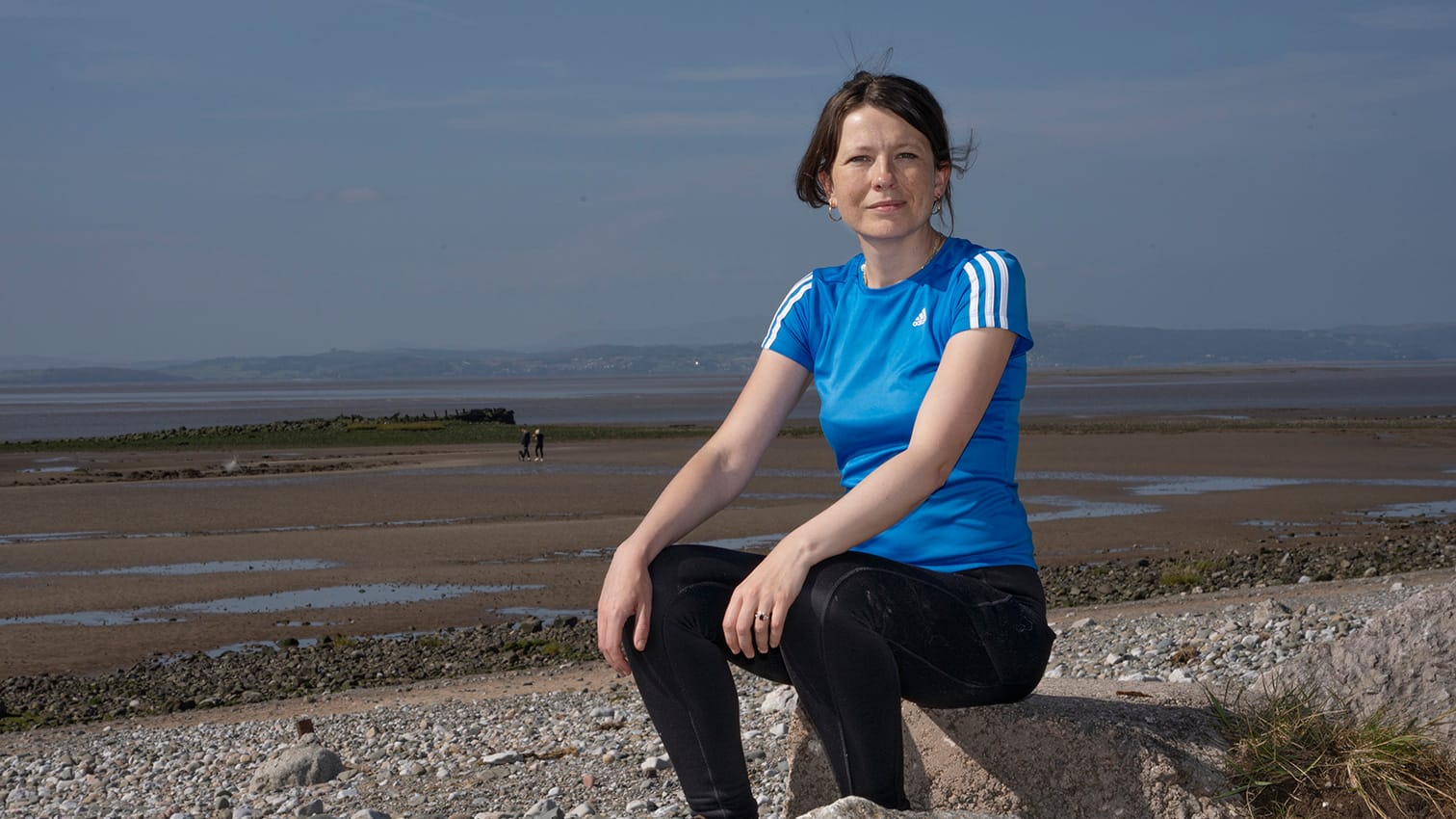
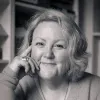
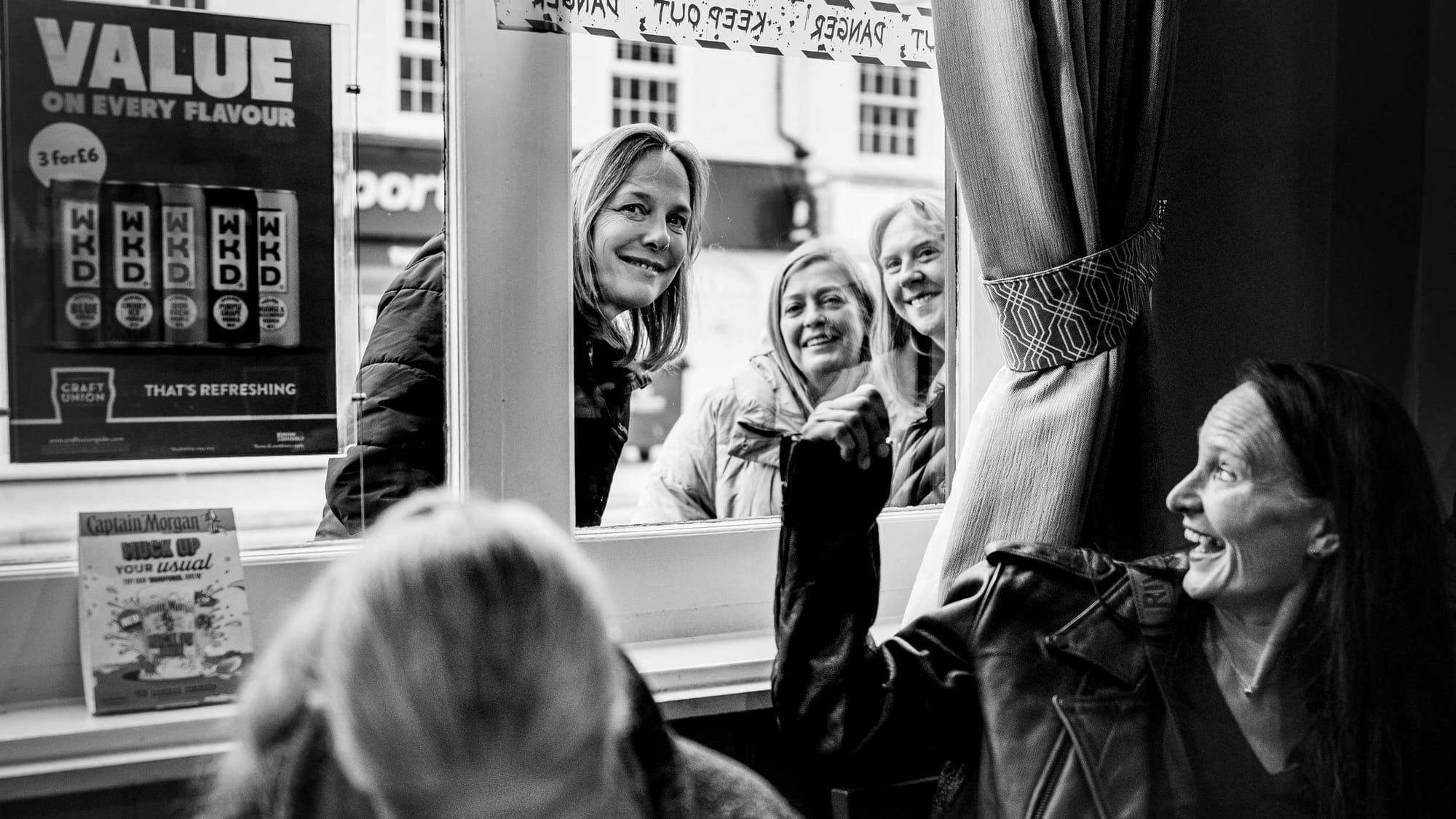
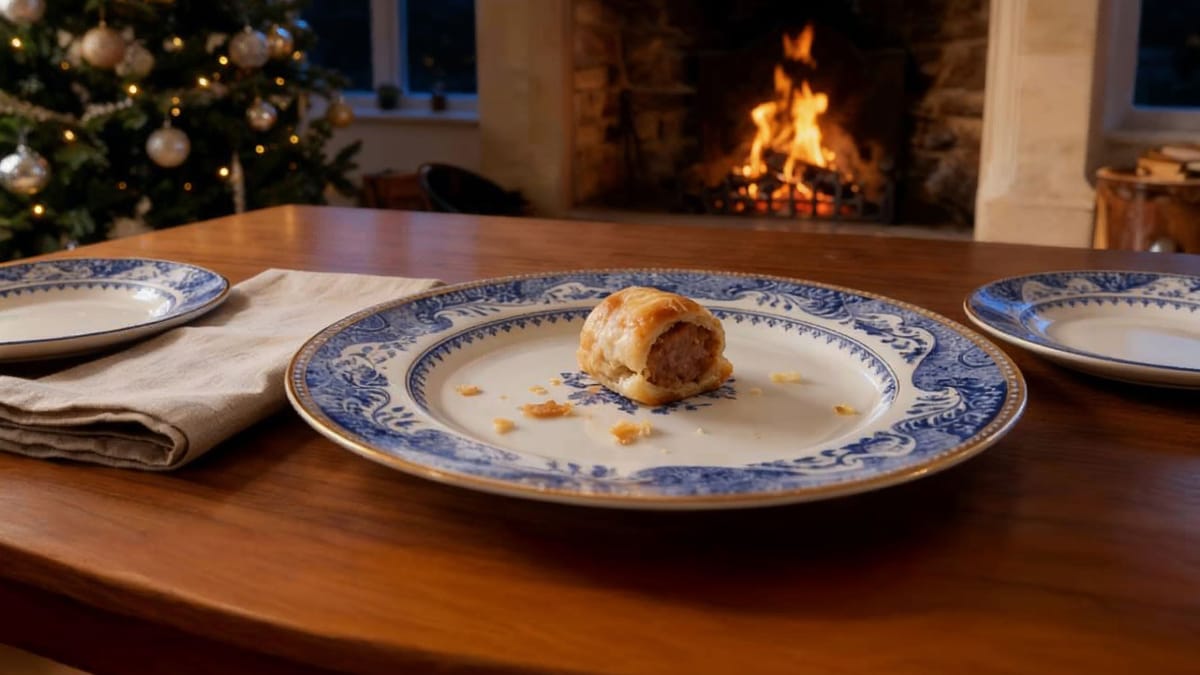
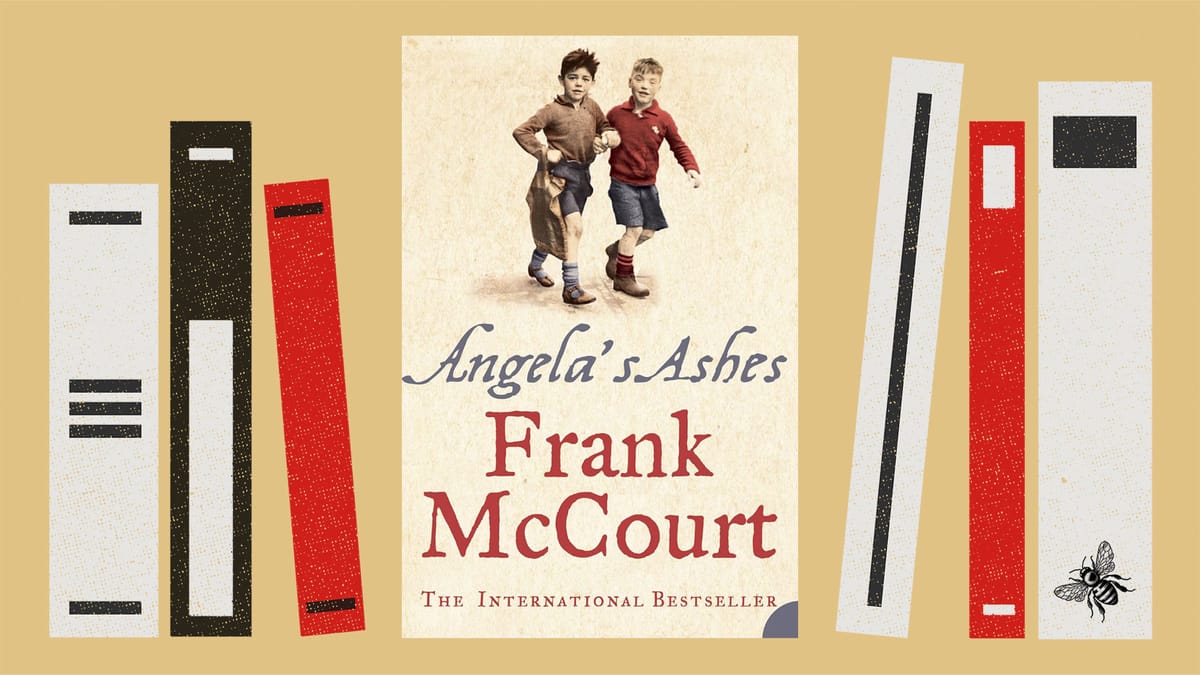


Comments